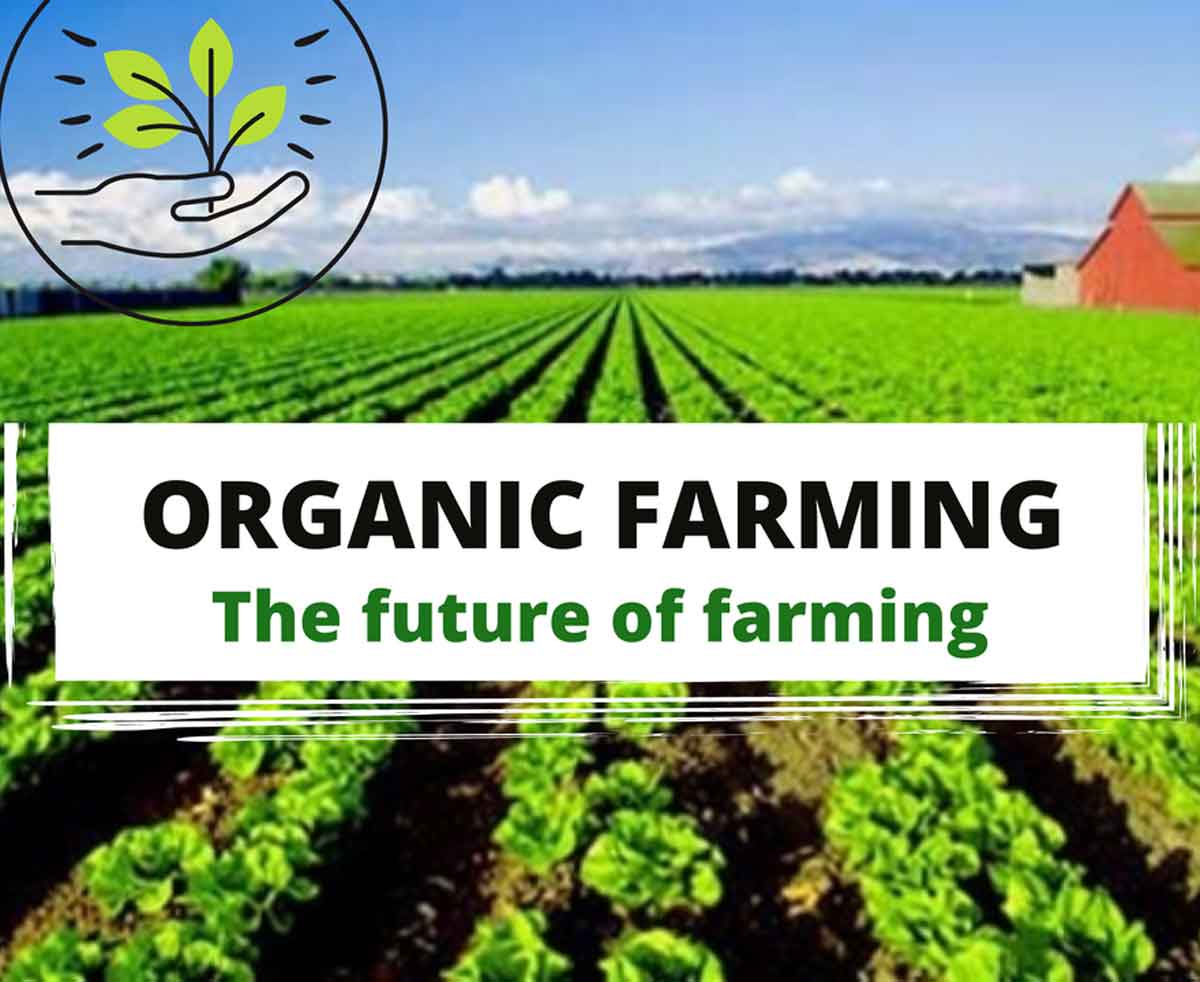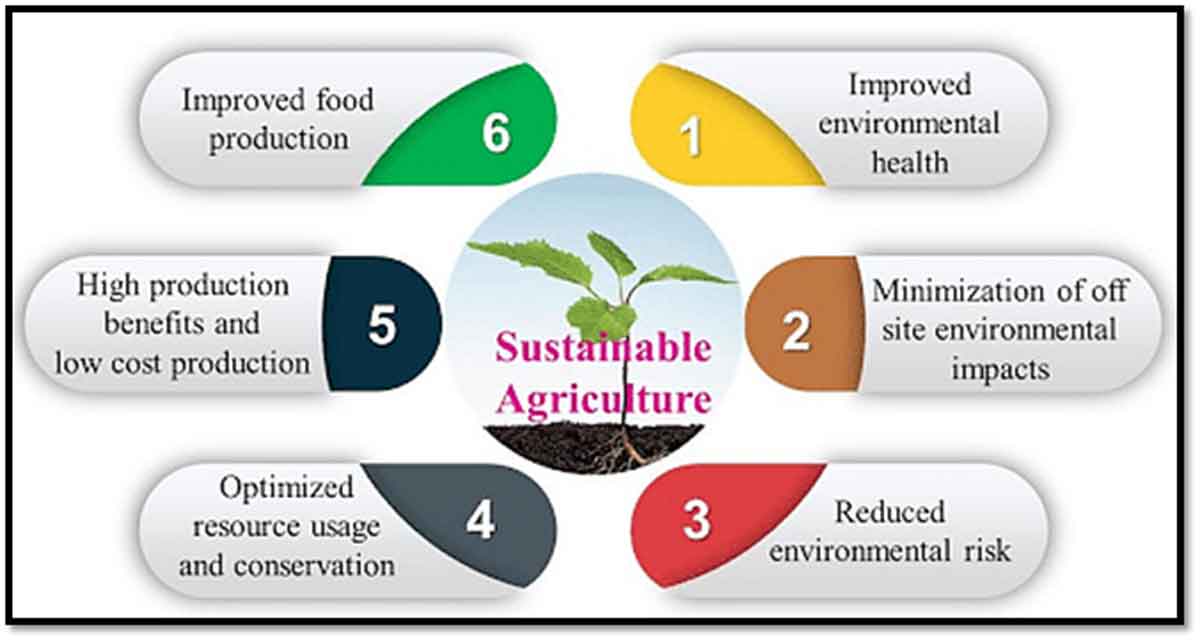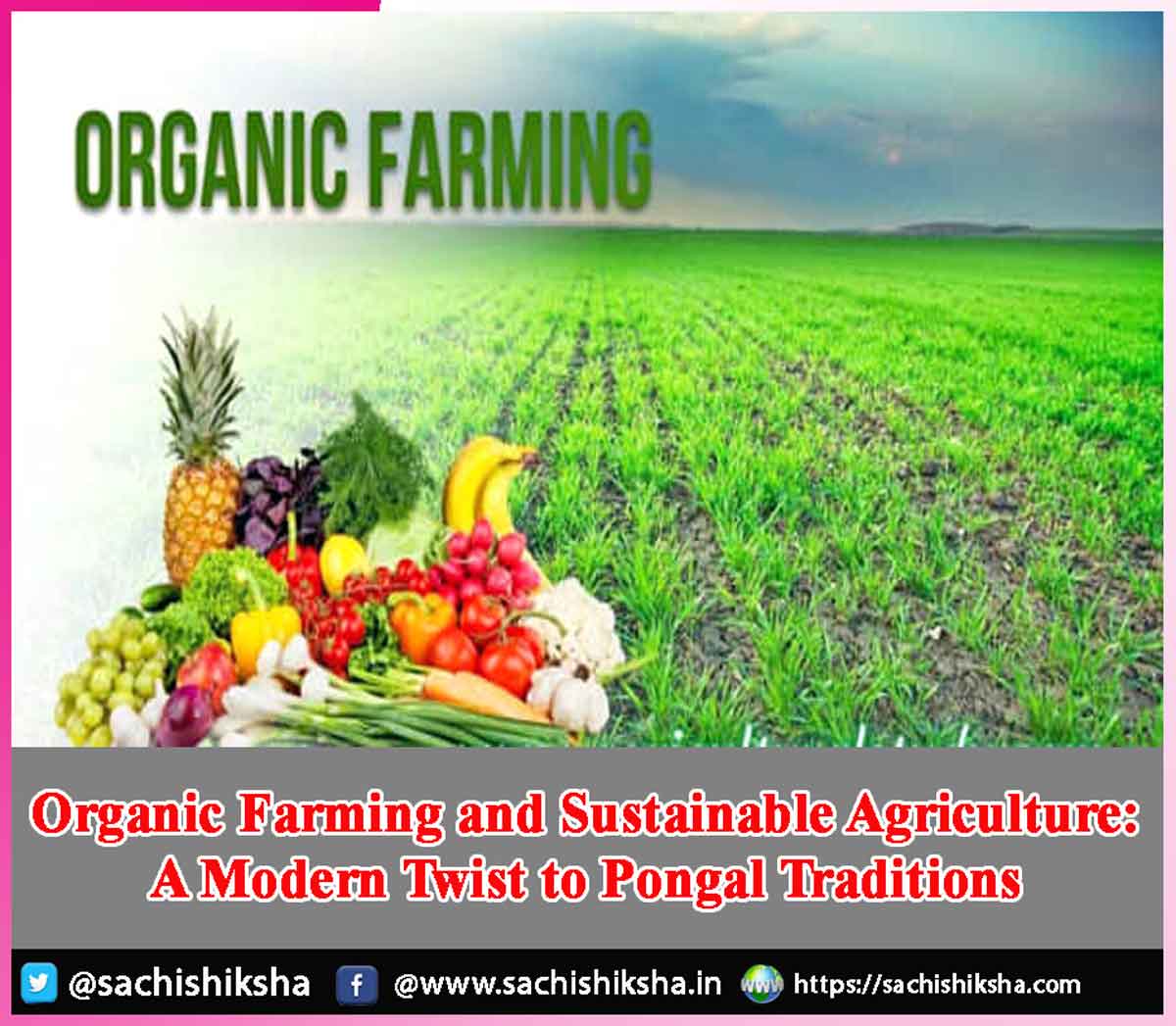Organic Farming and Sustainable Agriculture: A Modern Twist to Pongal Traditions
Introduction: Organic farming as the name suggests is a method of agriculture that uses natural processes and resources to grow food. In this type of agriculture system, sustainability, soil fertility and biological diversity are at the core. Organic farming originated in the 20th century and is practiced widely throughout the world even today.
Table of Contents
Modern Farming and Organic Farming

Principles of Organic Farming
There are four principles of organic farming, which are –
- Principle of Health – Organic agriculture encourages the protection and improvement of the health of soil, plants, animals, humans, and the planet. It promotes avoiding the use of fertilizers, pesticides, animal drugs, and food additives that could harm health.
- Principle of Ecology – Organic agriculture focuses on living ecological systems and cycles, working with them, emulating them, and helping sustain them.
- Principle of Fairness – Organic agriculture focuses on building fair relationships that respect the environment and provide equal opportunities for all. Fairness means creating production, distribution, and trade systems that are transparent, just, and consider the true environmental and social costs.
- Principle of Care – Organic agriculture focuses on being careful and responsible to protect the health and well-being of both current and future generations, as well as the environment.
Sustainable Agriculture
Sustainable agriculture is a farming method that aims to produce food while reducing harm to the environment, balancing food production with nature’s care. As the basic definition of sustainability goes, sustainable agriculture also aims to meet the needs of existing generations while ensuring profitability, environmental health, and social and economic equity for future generations. Organic farming as discussed above is one of the core practices in sustainable agriculture. Other practices like agroforestry, wherein, trees are integrated into agricultural landscapes to improve soil and water quality, promote better biodiversity, and create a more sustainable farming environment.
Steps of Sustainable Agriculture
A few important steps of sustainable agriculture include, crop rotation and diversification, where crops with different nutrient needs and pest resistance are rotated to enhance nutrient availability and prevent soil erosion. Another aspect is the integrated pest management where predator species of insects are introduced to promote pest control while reducing the reliance on chemical pesticides, thereby reducing the environmental impact. The next step would be conservation tillage which focuses on minimum ploughing and tilling to maintain the soil structure. Renewable energy sources such as solar and wind are used in the agricultural practices and rotational grazing by the livestock is practised to prevent overgrazing and enhance animal welfare.
Pongal and Sustainability
Pongal, the vibrant festival of harvest, is celebrated over four joyful days in India. During this time, people come together to express their gratitude to the Sun, rain, soil, and the hardworking farm animals that play a vital role in ensuring a bountiful harvest. Sustainability has always been at the core of Pongal celebrations. By offering gratitude to the Sun, people acknowledge the indispensable role it plays in sustaining life and enabling agricultural practices. Respecting the rain reinforces the importance of preserving water bodies and rain patterns for the sustainability of future harvests.
The soil sustains crops, and the reverence shown towards it reinforces the idea of preserving and nurturing the earth for future generations. The act of offering Pongal (a dish made of newly harvested rice, sugarcane, and lentils) symbolizes the bounty provided by nature, but it also acts as a reminder that these resources should be used responsibly. In addition, the preparation and sharing of food during the festival reinforce the message of equality and fairness in the distribution of resources, promoting the idea that natural abundance should be shared rather than wasted.

Indirect Benefits of Organic Farming & Sustainable Agriculture
A few benefits of organic farming and sustainable agriculture have been discussed above but there are notable indirect benefits from following of such practices, which are-
- Water Conservation: Organic farming helps reduce water pollution by eliminating the use of synthetic fertilizers and pesticides, which often contaminate water sources.
- Prevention of Soil Erosion: Sustainable farming practices like crop rotation and cover cropping help prevent soil erosion. These methods maintain soil health and protect the land for future use.
- Climate Change Mitigation: Organic farming helps fight climate change by capturing more carbon in the soil and lowering greenhouse gas emissions compared to traditional farming.
- Reduced Chemical Residue: By steering clear of synthetic pesticides and fertilizers, organic farming ensures that food contains fewer chemical residues, lowering health risks for consumers. Organic farming supports a healthy microbiome, which in turn supports a healthier gut and immune system.
- Financial Benefits to Farmer: Transitioning to organic farming can boost profitability and provide long-term economic stability for farmers, particularly amid rising input costs and tighter environmental regulations.
Challenges
While the benefits of sustainable agricultural practices are many, it comes with its own list of challenges as mentioned below:
- Output Issues: The products obtained through organic farming are less in the initial years as compared to that in chemical products. So, farmers find it difficult to accommodate large-scale production.
- Infrastructure Issues: A major challenge of organic farming is the insufficient infrastructure and lack of effective marketing for organic products.
- Shorter Shelf Life: Organic products have a shorter shelf life and more imperfections compared to chemical-based products.
Conclusion
Sustainable agriculture, like any practice, has its pros and cons, but the long-term rewards are undeniable. However, to make sustainable agriculture a widespread movement, it’s crucial to raise awareness about its cultivation methods, storage, and the nutritional benefits of organic produce. With the right knowledge and infrastructure, we can turn these practices into a global revolution.















































